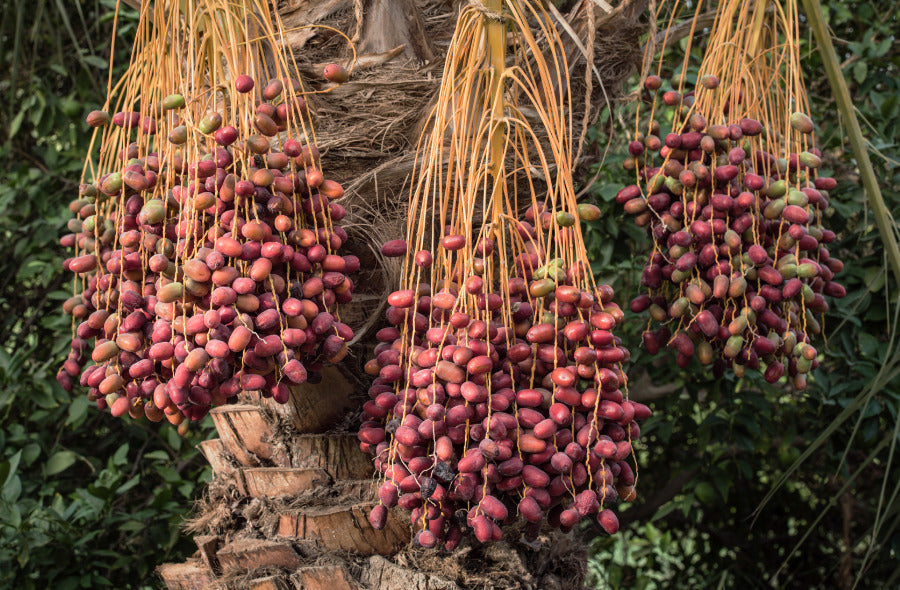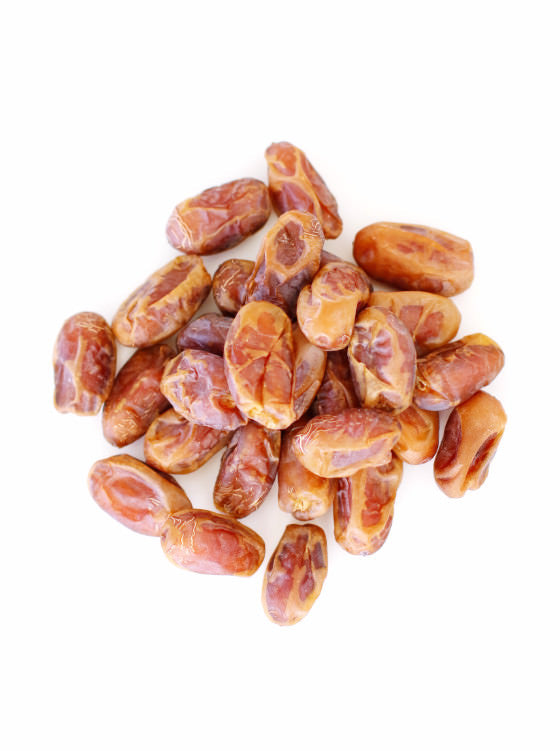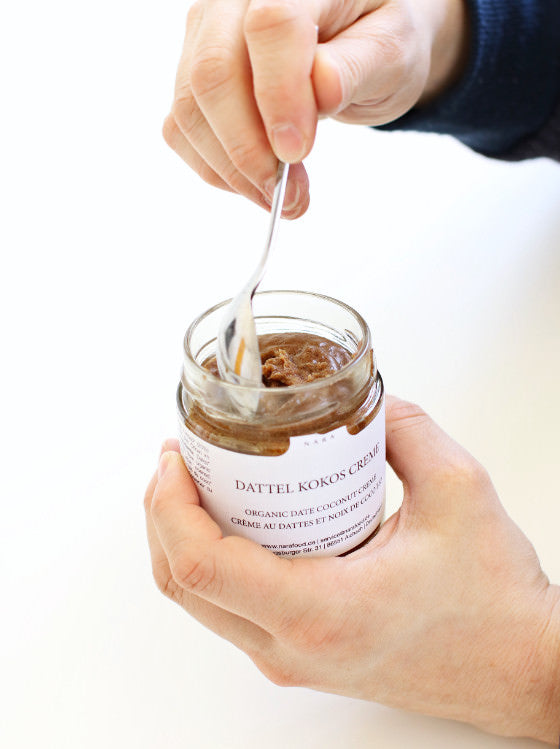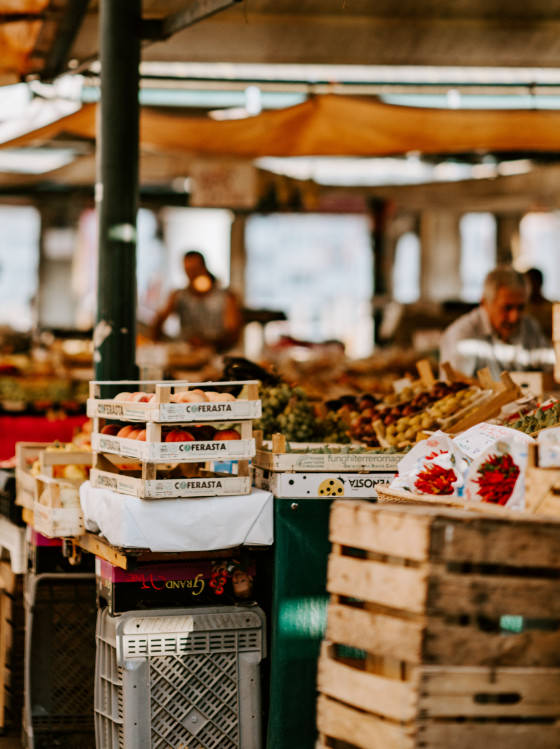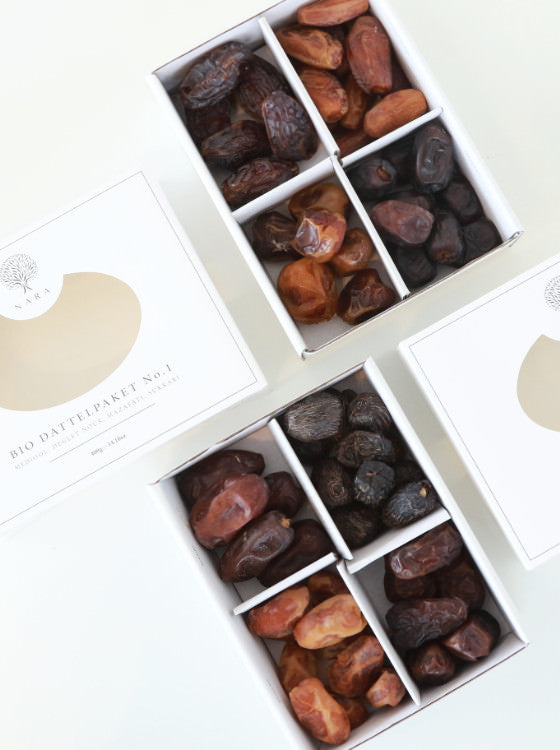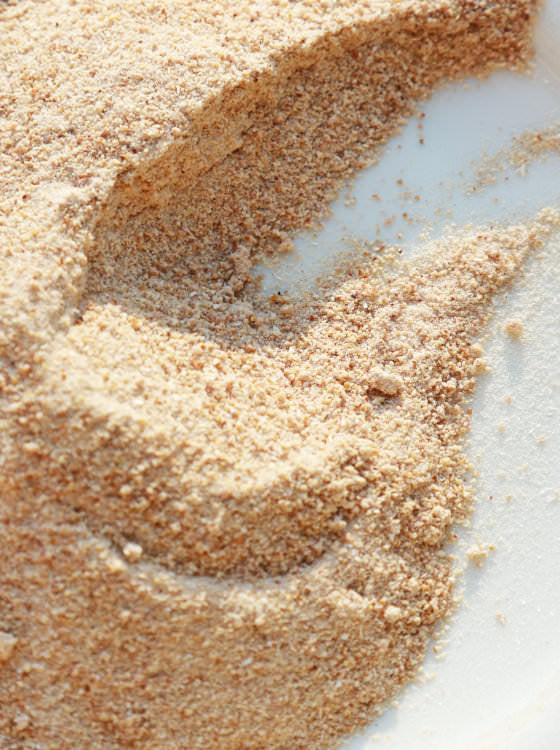Dates can enrich our world of taste and our diet immensely, in cooking and baking or as a snack. However, not all dates are of the same quality. Their unique properties are made up of various factors. Some of these can be assessed objectively, while others depend more on your personal preferences. From skin separation to size: in this article, you can find out which factors to look out for.
Criteria for interested gourmets:
Origin and cultivation
At NaraFood, we consider the origin of a date and the way it is grown to be decisive for its quality. We rely on sustainable organic cultivation, as this is not only better for the environment, but also for you. Chemical pesticides can leave behind residues that we want to avoid.
Another important point is direct trade without middlemen and personal contact with our long-standing partners on the date farms. Transparent and fair trade relations help to ensure that the farm crew is fairly remunerated and that sustainable cultivation methods become even more established.
"Skin separation" - a controversial quality feature of dates
"Skin separation" refers to the detachment of the skin from the flesh. This phenomenon occurs mainly in dates with a higher moisture content, as the skin remains more firmly attached to the flesh in drier varieties.
- This quality feature is assessed by the farms, particularly in the case of Medjool dates, and is divided into different price categories. Dates with more "skin separation" are cheaper, while flawless fruit fetch higher prices. However, Medjool dates with more "skin separation" are not worse, it is merely a question of appearance.
- There are also varieties such as Kholas, Khidri or Fankha, where a loose skin is part of the regular natural characteristic and is by no means seen as a quality disadvantage.
Some date fans even prefer fruits with "skin separation" because they like to remove the skin and see this supposed "shortcoming" as a definite "plus"!

Storage - preserving freshness
Storing dates correctly makes a big difference to their quality. Ideally, our organic dates should be stored in a cool place to preserve their freshness and flavor as much as possible. Basically, the juicier the dates, the more important it is to store them in a cool place.
- Fresh, moist dates (e.g. mazafati, fresh medjool) should always be refrigerated, otherwise they may go moldy or ferment. The fridge (2-4°C) is usually sufficient for this. However, our Super Fresh varieties (e.g. Medjool Super Fresh) even need to be stored in the freezer (< 0°C)! If you like them a little softer, you can store them at room temperature for a while before eating them - this makes them softer.
- Semi-dry or dried dates (e.g. Deglet Noor) can be stored unrefrigerated in the cellar or pantry. However, we also recommend storing drier dates in a cool place to preserve their flavor for as long as possible.
Flavor profile and sweetness - a question of taste
Dates can have a fantastic variety of flavor profiles - caramel, fruity or toffee-like - the most delicious differences unfold depending on the variety. The sweetness also varies from very intense to pleasantly mild. There is no "better" or "worse" here - it all depends on your individual taste and the intended use. To make it easier for you to choose, we describe the taste quality of each date variety as precisely as possible on our website. It's best to try out different varieties with our date tasting set in the gift box and find your favorites.
Consistency - from creamy and soft to pleasantly firm to the bite
Whether you prefer your dates to be soft and juicy or a little firmer is also a purely subjective matter of taste, where no one can say they are "good" or "bad". Important to know: Fruits are natural products and their consistency can vary slightly from harvest to harvest - after all, they don't come from a laboratory. Dates that we received very juicy from our cultivation partner one year may turn out less juicy the next year.
Tips on consistency:
- Dates that are too firm? Dates are often very firm when they come straight from the fridge. Leave them at room temperature for a while - Medjool dates in particular will then become noticeably softer. If you have a large quantity of dates at home (e.g. 5 kg), we recommend storing only a portion of them at room temperature that can be eaten in 1-2 weeks. This will prevent your entire supply of dates from drying out or losing their flavor.
- Dates too soft? They can easily dry out if stored in an airy place at room temperature. It is important that the air can circulate well around the fruit to prevent mold from forming. Check the fruit regularly!

Appearance and size - variety is key
We take all varieties as they are and do not judge them by their appearance! :)
Dates come in a wide variety of shapes, colors and sizes. Some varieties are naturally large (e.g. Medjool, Fankha, Khidri), others remain smaller (e.g. Ajwa, Deglet Nour). Medjool dates are often sorted by size on the farm and sold in categories such as "medium", "large" or "jumbo". The larger varieties are usually a little more expensive.
Speaking of appearance:
Looking at the fruit before eating it is of course an important step to rule out any actual defects. Read these articles if you have any concerns:
- that your dates have mold or
- that your dates have been in contact with insects.
The best quality dates are the ones that taste best to you!
As you can see, the quality of dates cannot be reduced to a single characteristic. Our aim is to offer you an exciting selection of organic quality dates and to help you find exactly the dates that are perfect for you. So feel free to contact us if you have any questions about the varieties or try your way through our range until you have discovered your "best dates".

